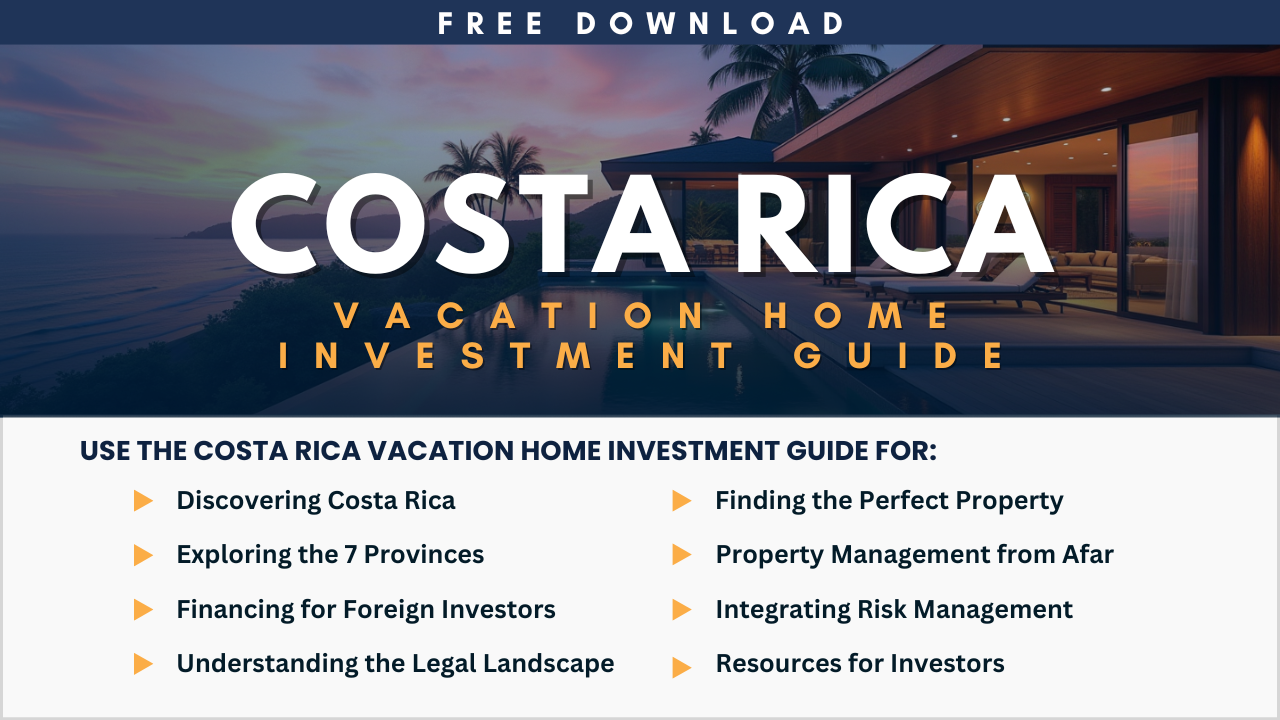
Why Every Smart Investor Plans the Sale Before the Purchase
For many investors, purchasing a vacation rental or a property for resale is the exciting part of the investment process. After all, finding the perfect property, negotiating the deal, and watching your asset appreciate can be incredibly rewarding. However, one critical component of the investment journey is often overlooked: planning how and when you will sell. Having a clear exit strategy is essential for maximizing your investment returns and avoiding costly mistakes down the line.
A strong exit plan will provide clarity from day one, allowing you to make better decisions throughout the property’s ownership. Whether you intend to flip the property for a quick profit, rent it for steady income, or hold it long-term until the market conditions are favorable for sale, knowing your exit strategy will guide your approach. It’s easy to get caught up in the excitement of buying a property, but knowing how you plan to exit the investment is just as critical. The goal of any investment is to generate a positive return, and your exit strategy is a key part of achieving that. By planning ahead, you can better evaluate the property’s potential, market conditions, and future opportunities
This article will explore why every smart investor plans the sale before the purchase and provide actionable insights on how to effectively create your exit strategy.
The Importance of a Clean Exit Strategy
It’s easy to get caught up in the excitement of buying a property, but knowing how you plan to exit the investment is just as critical. The goal of any investment is to generate a positive return, and your exit strategy is a key part of achieving that. By planning ahead, you can better evaluate the property’s potential, market conditions, and future opportunities.
- Maximizing Profit Through Market Timing: An exit strategy allows you to capitalize on peak market conditions and sell when the market is favorable. By planning ahead, you can time the sale to coincide with higher demand, which can boost your profit margins. This is especially crucial for short-term rental properties that fluctuate with the seasons or market trends. For instance:
- In popular tourist destinations like Tulum, Mexico, property values can rise by 10-20% annually, especially during peak seasons. Knowing when to sell during these peaks can significantly increase your ROI.
- In popular tourist destinations like Tulum, Mexico, property values can rise by 10-20% annually, especially during peak seasons. Knowing when to sell during these peaks can significantly increase your ROI.
- Maximizing Rental Income or Flipping Profits: Whether you plan to hold the property long-term for steady rental income or flip it for a quick profit, planning your sale in advance helps you better align your property management strategy to meet your end goals. Knowing when you want to sell helps you decide when to stop investing in upgrades or renovations.
- Real-life example: A New York City property investor who intended to flip their property after a quick renovation waited for the local market to appreciate by 10% before selling, making an additional $50,000 in profits.
- Real-life example: A New York City property investor who intended to flip their property after a quick renovation waited for the local market to appreciate by 10% before selling, making an additional $50,000 in profits.
- Exit Strategy Focus: Whether you are looking for short-term profits or long-term growth, planning the sale allows you to understand the overall goal of your investment. Understanding your exit strategy from the beginning ensures that you manage the property with a clear purpose, whether it’s to sell within a year or hold it for several decades.
- Key Takeaway: Investors who plan their sale before purchasing gain a clearer understanding of their investment goals, allowing them to make smarter, more profitable decisions throughout the ownership process.
The Risk of Not Having an Exit Strategy
Failing to plan an exit strategy can expose you to risks that directly affect your financial outcomes. Investors without an exit plan often make decisions based on emotions, unforeseen circumstances, or changing market conditions. Here's what can go wrong when you don’t plan ahead:
- Missed Timing: Real estate markets are cyclical. If you don’t plan when to sell, you risk selling during a downturn or missing a high point in the market. For example, if you hold on to a property during a declining market, you may end up selling for much less than you initially paid.
- Emotional Attachment: Without a clear exit strategy, emotional factors may lead you to keep a property longer than necessary, particularly if it’s a location you love. Holding onto a property for sentimental reasons could lead to missed opportunities to capitalize on market gains.
- Underestimating Future Costs: Without a plan in place, you might overlook future costs such as capital gains taxes, property taxes, or renovation expenses to make the property more marketable. These costs can erode your profits significantly.
Without a clear exit strategy, you may miss key market opportunities, become emotionally attached to the property, or incur unexpected costs—reducing your potential profits and return on investment.
How to Create a Smart Exit Strategy
An effective exit strategy is not a one-size-fits-all plan - it should be tailored to your investment goals, timeline, and the property’s potential. Here’s how to craft a smart exit strategy before purchasing the property:
- Set Clear Goals: Start by setting realistic financial goals. Do you want to sell within one to five years for a quick flip, or do you want to hold for 10+ years for long-term appreciation and rental income?
- Case in point: An investor in Miami Beach planned to sell their property within 3 years after renovations. They strategically timed their sale to coincide with the annual rise in property values, allowing them to sell for 30% more than they paid.
- Case in point: An investor in Miami Beach planned to sell their property within 3 years after renovations. They strategically timed their sale to coincide with the annual rise in property values, allowing them to sell for 30% more than they paid.
- Market Timing and Conditions: Assess the local real estate market thoroughly. Understand the cyclical nature of real estate markets and determine the best time to exit based on historical trends and future forecasts. For example, if you’re investing in a vacation rental property in Costa Rica, knowing peak seasons and market saturation will help you identify the best time to sell.
- Calculate All Costs and Taxes: When planning for the sale, make sure to factor in all costs associated with selling a property, including:
- Agent fees (typically 5-6% of the sale price)
- Capital gains taxes (can be up to 20% in some locations)
- Renovation or repairs to prepare for sale
- Closing costs and administrative fees (usually around 2-4% of the sale price)Make sure to factor these costs into your financial projections so you can accurately calculate your ROI.
- Flexibility in Your Plan: Life changes, and market conditions can shift unexpectedly. A smart exit strategy is flexible and adaptable to changing circumstances. If the market starts to decline, you might need to shift your strategy from selling to holding the property for rental income.
The Benefits of Planning the Sale Before the Purchase
Planning your exit strategy before the purchase offers significant benefits for investors:
- Better ROI: Knowing when and how you plan to sell allows you to maximize your profits by selling during optimal market conditions. With a clear exit strategy, you can avoid holding onto the property too long and incurring unnecessary costs.
- Reduced Stress: Having an exit plan takes the pressure off of having to make decisions in a rush. You’ll know exactly when to sell, when to make improvements, and when to hold onto the property. This clarity leads to less stress and more confident decision-making.
- Informed Decision Making: By planning for the sale from the outset, you’ll be better equipped to make all decisions regarding the property—from purchasing and financing to renovations and rental strategies—based on your ultimate goal of maximizing ROI.
Conclusion
Many investors overlook the importance of planning the sale of their property before making the purchase, which can lead to poor decisions, missed opportunities, and lower returns. Planning your exit strategy from day one is a critical part of any successful investment plan. It allows you to set clear financial goals, time the market, calculate costs, and be prepared for unexpected shifts in the market.
Whether you’re flipping the property for a quick profit or holding it for long-term rental income, having a clean exit strategy helps ensure that you’re able to make the most out of your investment. By understanding how and when you plan to sell, you can manage your property more effectively, maximize your returns, and make more confident decisions throughout the investment process.
👉 For more tips on planning your real estate investments and crafting the perfect exit strategy, visit vacationpropertyexpertnetwork.com.







